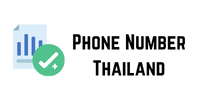The team was made up of three students of the bachelor’s The tasks programme in Applied Mathematics and Information Science: fourth-years Mikhail Anoprenko and Ivan Safonov and third-year student Vladimir Romanov.
‘We prepared for the competition by doing team training exercises? taking part in team camps? and running lots of personal contests?’ Ivan Safonov explained. ‘
The Faculty of Computer The tasks
Science provided bursaries to support us.’
Ivan also admitted that the team encountere some difficulties in finding suppliers successfully on the web since 1995 the days leading up to the finals: team member Vladimir Romanov was denied entry to the competition. ‘Vladimir was remove from the competition at the start of October. He hadn’t received a [COVID-19] vaccine for medical reasons. We spent a lot of time and effort in the days before the competition defending our right to participate as a three-person team?’ the students explained. In the end? Ivan Safonov and Mikhail Anoprenko took part as a two-person team.
‘ the same as those in other programming competitions. You’re the paper has been published given the parameters of the task and have to write a program that reads input data? solves the task and outputs an answer?’ explained Mikhail Anoprenko. ‘The tasks in the final were quite complex? but that was to be expecte? and we had solved tasks from previous competitions as part of our training.’
The team from HSE University in
Moscow managed to achieve excellent results despite the challenges who awb directory are face and the absence of a team member? finishing in the bronze category alongside teams from MIT? Kharkiv National University of Radioelectronics and the University of Illinois at Urbana-Champaign. [Editor’s note: there are 12 winning places in the ICPC? with four winning teams each receiving a set of gold? silver or bronze medals.
